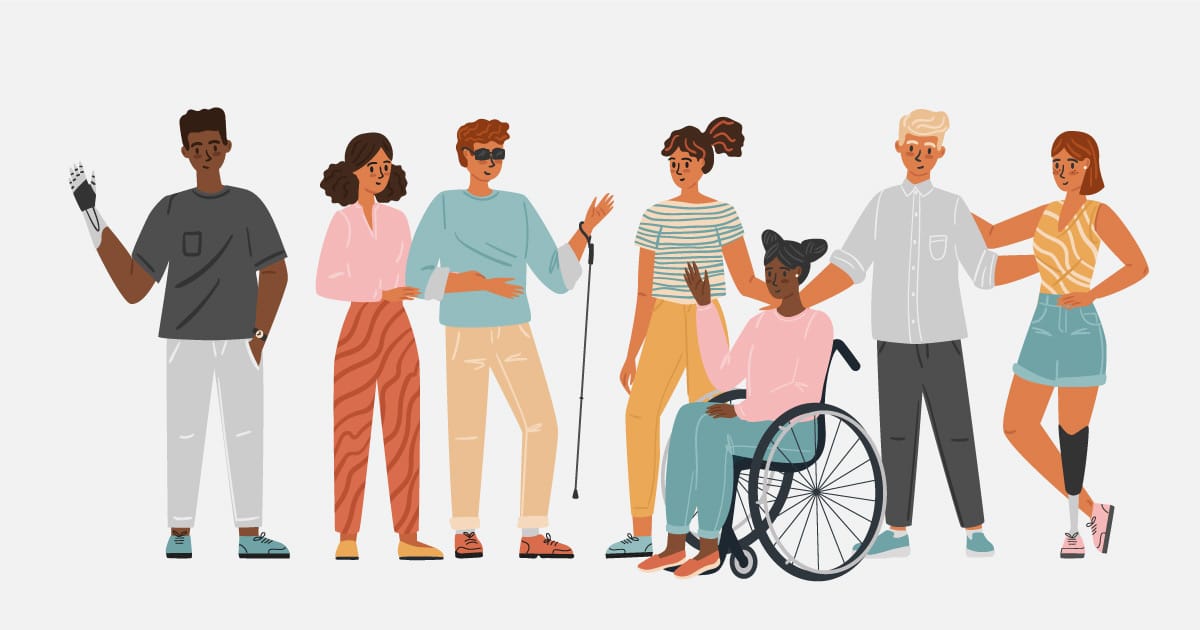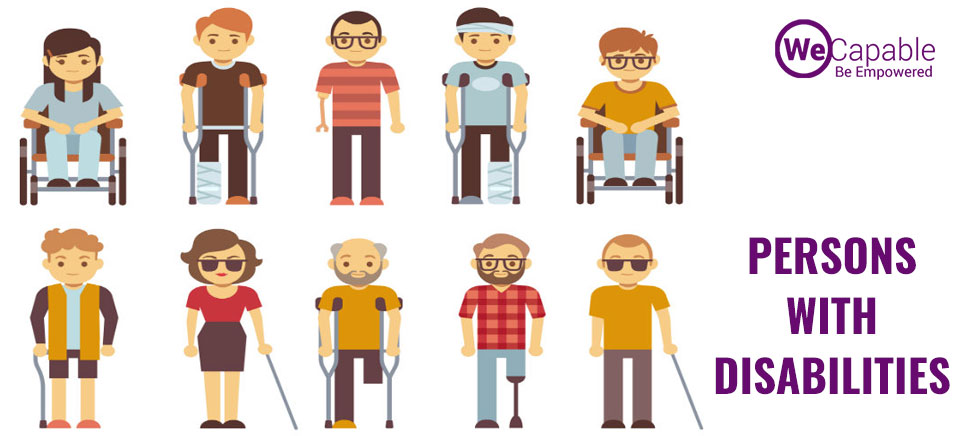What Disability Does Jamie Oliver Have? Unpacking His Personal Journey
Many of us know Jamie Oliver as the energetic, passionate chef who brought fresh, simple cooking into our homes and schools. He's that friendly face, you know, always bubbling with new ideas for food. Yet, behind the bright smiles and delicious recipes, like your favorite comfort food, there are personal challenges he's openly shared. People often wonder about the specific hurdles public figures face, especially when they seem to achieve so much. It's a very natural curiosity, isn't it, to look beyond the surface?
This curiosity often leads folks to ask, "What disability does Jamie Oliver have?" It's a question that, in some respects, comes from a place of wanting to understand more about the person, to see their full story. For Jamie, his journey with certain learning differences has been a pretty big part of his life, shaping how he approaches things, and even how he communicates his love for food.
So, today, we're going to take a closer look at what Jamie Oliver has spoken about regarding his own experiences. We'll explore the specific conditions he's shared with the world, how they affect him, and what we can learn from his very open approach to these personal aspects of his life. It's a chance to appreciate his work even more, knowing the full picture, you know?
Table of Contents
- Jamie Oliver: A Look at His Life and Work
- Understanding Jamie Oliver's Known Challenges
- Navigating Neurodiversity in the Public Eye
- Frequently Asked Questions About Jamie Oliver's Health
- Moving Forward: Embracing Different Minds
Jamie Oliver: A Look at His Life and Work
Early Life and Culinary Rise
Jamie Oliver, born on May 27, 1975, in Clavering, Essex, England, grew up in a family that ran a pub and restaurant. This early exposure to food and hospitality, you know, really sparked his passion for cooking. He started helping out in the kitchen at a very young age, learning the ropes from his parents. It's pretty clear that his love for food was something he developed early on, a bit like a natural talent blooming.
His professional cooking journey began at the age of 16, and he quickly made a name for himself in London's restaurant scene. He worked at the Neal Street Restaurant and later at The River Café, where he was discovered by television producers. His charismatic personality and straightforward approach to cooking, as a matter of fact, quickly made him a household name. He burst onto the TV scene with "The Naked Chef" in 1999, which showed off his simple, fresh, and often very quick recipes.
Beyond his cooking shows, Jamie Oliver has become a well-known advocate for healthier eating, especially for children. His campaigns, such as "Feed Me Better" and efforts to improve school dinners, have had a pretty big impact globally. He's also opened numerous restaurants and published many best-selling cookbooks, which, you know, truly cemented his place as a culinary icon. His work really shows how much he cares about food and people.
| Detail | Information |
|---|---|
| Full Name | James Trevor Oliver |
| Born | May 27, 1975 |
| Birthplace | Clavering, Essex, England |
| Occupation | Chef, Restaurateur, Author, Television Personality |
| Spouse | Juliette Norton (m. 2000) |
| Children | 5 |
| Known For | "The Naked Chef," advocating for healthier eating, school meals campaigns |
Understanding Jamie Oliver's Known Challenges
Jamie Oliver has been very open about his experiences with certain learning differences. These aren't, you know, physical disabilities in the traditional sense, but rather ways his brain processes information a bit differently. He's spoken candidly about both dyslexia and ADHD, offering insights into how these conditions have shaped his life and career. It's pretty inspiring, actually, how he talks about them.
Living with Dyslexia
One of the most widely known aspects of Jamie Oliver's personal journey is his experience with dyslexia. He's often spoken about how reading has been a struggle for him, even as an adult. For a long time, he really didn't read books, and he has mentioned that he only fully finished his first book in his 30s. This, you know, shows a pretty big personal hurdle he's had to overcome.
What is Dyslexia?
Dyslexia is a common learning difficulty that primarily affects the skills involved in accurate and fluent word reading and spelling. It's not about how smart someone is; people with dyslexia have average or above-average intelligence. Instead, it's a difference in how the brain processes language. This can make it hard to break down words into sounds, remember sequences, and, like your memory failing you sometimes, recall facts quickly.
Symptoms can vary, but they often include difficulties with phonological awareness (understanding the sound structure of words), verbal memory, and processing speed. So, for example, reading aloud might be slow or inaccurate, and spelling can be a real challenge. It's a bit like trying to read a map when some of the street names are just a little bit blurry, you know?
How it Shapes His World
For Jamie Oliver, dyslexia has meant that he learns and processes information in ways that are perhaps less conventional. He's a very visual and practical learner, which, honestly, makes a lot of sense for a chef. He learns by doing, by seeing, and by tasting, rather than by reading long instructions. This hands-on approach, you know, has probably helped him a great deal in the kitchen, where intuition and feel are very important.
He's spoken about how his dyslexia has actually made him more creative and resourceful. Because he couldn't rely on traditional methods of learning, he had to find other ways to absorb and share knowledge. This might be why his recipes are often so straightforward and easy to follow, focusing on practical steps rather than overly complex written directions. It's just a different way of thinking, and, in some respects, it's quite brilliant.
Jamie Oliver and ADHD
More recently, Jamie Oliver has also shared that he has Attention Deficit Hyperactivity Disorder, or ADHD. He mentioned this in an interview, explaining that he'd been diagnosed later in life. This diagnosis, you know, helped him understand some of his own behaviors and thought patterns a bit better. It's pretty common for adults to receive an ADHD diagnosis, as symptoms can be misinterpreted or overlooked in childhood.
What is ADHD?
ADHD is a neurodevelopmental condition that affects how a person pays attention, controls impulsive behaviors, and manages their activity levels. It's not just about being hyper or easily distracted; it's a difference in brain structure and function that impacts executive functions. These are the skills that help us plan, prioritize, organize, and regulate emotions, you know, like the conductor of an orchestra trying to keep everything in sync.
Symptoms often include difficulty focusing, restlessness, impulsivity, and challenges with organization. People with ADHD might find it hard to stay on task, manage time, or remember details. However, they also often possess incredible energy, creativity, and the ability to hyperfocus on things they are truly passionate about. It's a spectrum, and, honestly, it affects everyone a little bit differently.
In the broader discussion of ADHD, it's worth noting that medical science has explored various ways to manage its symptoms. Sometimes, people with ADHD might explore different treatment paths, which can, in some cases, include certain stimulant medications. For example, you know, some stimulants, which can speed up the body's system, are available in prescription form, like Desoxyn®, to help with ADHD and obesity, as a matter of fact. These powerful substances, like methamphetamine, can make you feel more awake and active, and scientists in the early 20th century developed them to try and improve things. It's just a general fact that methamphetamine, or meth, is a stimulant drug that speeds up your body’s central nervous system, boosting dopamine, a brain chemical that helps with movement. In low to moderate doses, it can, in some respects, elevate mood, increase alertness, and help concentration in fatigued individuals, reduce appetite, and promote weight loss. But, you know, it's also a highly addictive stimulant that dramatically increases dopamine levels, leading to intense euphoria, rapid dependence, and severe health risks, including heart problems. It's important to understand that such drugs, like crystal meth which resembles glass fragments, are powerfully addictive and dramatically affect the central nervous system, increasing the activity of several neurotransmitters. This information is a general overview of a substance that, in very specific medical contexts, is sometimes discussed in relation to ADHD treatment, but it's not connected to Jamie Oliver's personal health or treatment choices.
The Impact on Daily Life
For Jamie, having ADHD probably explains some of his boundless energy and his tendency to jump from one project to another with great enthusiasm. It might also contribute to his quick thinking and his ability to improvise, which are very useful skills in a busy kitchen. While it can present challenges with organization or attention to detail in some areas, it seems to fuel his passion and drive. It's almost like his brain is always buzzing with ideas, which, you know, can be a really good thing for someone like him.
His openness about both dyslexia and ADHD helps to normalize these conditions. It shows that having a neurodevelopmental difference doesn't hold you back from achieving great things; it just means you might approach tasks and challenges in a unique way. His success is, in some respects, a testament to adapting and playing to your strengths.
Navigating Neurodiversity in the Public Eye
Jamie Oliver's decision to speak openly about his dyslexia and ADHD is pretty significant. In a world where public figures often keep personal struggles private, his candor offers a refreshing perspective. It helps to break down stigmas associated with learning differences and neurodiversity, which, you know, is really important for so many people.
Breaking Down Barriers
When someone as well-known and successful as Jamie Oliver talks about their experiences with dyslexia or ADHD, it sends a powerful message. It shows that these conditions are not limitations, but rather different ways of experiencing the world. It can help young people, and even adults, who might be struggling with similar challenges feel less alone and more understood. It's a way of saying, "Hey, you can still achieve your dreams, even if your brain works a little differently." This kind of visibility is, honestly, very valuable.
His openness also encourages conversations about neurodiversity in general. It prompts people to learn more about how different brains function and to appreciate the unique strengths that come with these differences. This, you know, helps to create a more inclusive and accepting society. It's a pretty big step towards better understanding.
Lessons from His Experience
Jamie Oliver's journey offers several important lessons. First, it highlights the importance of early identification and support for learning differences. Even if a diagnosis comes later in life, understanding how your brain works can be incredibly empowering. It allows you to develop strategies that work best for you, rather than trying to fit into a mold that doesn't quite suit you.
Second, his story reminds us that strengths often emerge from challenges. His dyslexia, for instance, might have pushed him to develop his visual and practical skills, which are, you know, essential for a chef. His ADHD might fuel his incredible drive and creativity. It's about finding your unique talents and making them work for you. For anyone facing a similar path, his experience is pretty inspiring, honestly.
Finally, his advocacy for healthier eating and his passionate campaigns show that his personal challenges haven't stopped him from pursuing his goals with full force. He channels his energy into making a positive impact on the world, which is, really, a wonderful thing to see. It's a powerful example of resilience and purpose.
Frequently Asked Questions About Jamie Oliver's Health
People often have specific questions when they learn about Jamie Oliver's personal health journey. Here are some common ones, you know, that come up pretty often.
Does Jamie Oliver have dyslexia?
Yes, Jamie Oliver has openly spoken about his experience with dyslexia. He has mentioned that it has affected his ability to read and write throughout his life, and he only fully read his first book as an adult. It's a very real part of his personal story, as a matter of fact.
What challenges does Jamie Oliver face?
Jamie Oliver primarily faces challenges related to his dyslexia and ADHD. These neurodevelopmental differences can affect how he processes information, focuses, and organizes tasks. However, he has learned to adapt and even use these differences to his advantage, like your favorite chef adapting a recipe, turning them into strengths in his creative and practical work.
Is Jamie Oliver neurodivergent?
Yes, based on his diagnoses of dyslexia and ADHD, Jamie Oliver is considered neurodivergent. This term describes people whose brains work differently from what is considered typical. His experiences, you know, really highlight the diverse ways human minds function.
Moving Forward: Embracing Different Minds
Jamie Oliver's openness about his dyslexia and ADHD offers a valuable lesson for all of us, especially today, on this day, May 17, 2024. It shows that personal challenges, particularly those related to how our brains are wired, don't have to be roadblocks. Instead, they can, in some respects, be catalysts for unique strengths and different ways of seeing the world. His journey reminds us that talent and success come in many forms, and often, it's the ability to adapt and be true to yourself that matters most.
Understanding neurodiversity, whether it's dyslexia, ADHD, or other conditions, helps us build a more inclusive and supportive society. It encourages us to look beyond conventional ideas of ability and to celebrate the diverse ways people think, learn, and contribute. You can learn more about neurodiversity on our site, and if you're curious about the specific support available for conditions like ADHD, you might want to link to this page Understanding ADHD Support. It's pretty clear that when we embrace these differences, everyone benefits, you know?

Tiffany Yu: How To Build a More Disability-Inclusive Culture

Persons with Disabilities: Definition, Rights, States and More

Common Barriers for Individuals with Disabilities in Public | TekWay